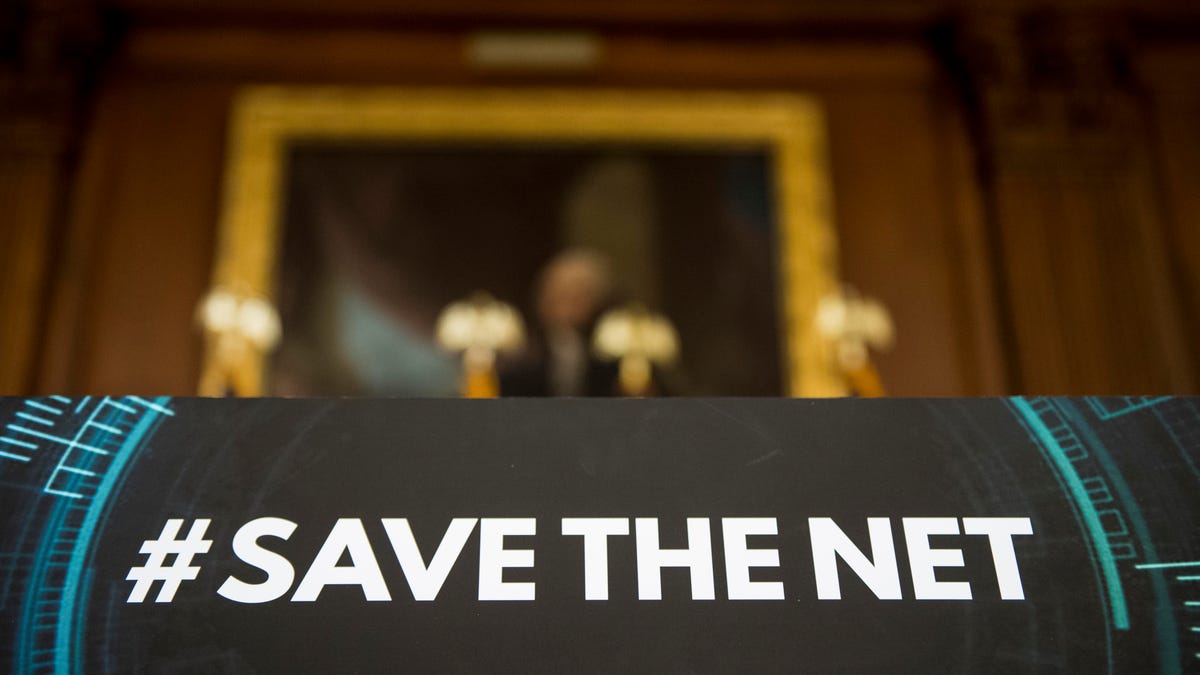VPNs may be your best weapon against internet throttling
Browsers can't protect your net neutrality, but a VPN can.

States could be the next battleground for activists looking to save Obama-era net neutrality rules. Now's the time to gear up with a VPN.
In October, a federal court kicked the question of net neutrality protections back to individual states when it upheld the Federal Communications Commission's decision to deregulate internet service providers. This leaves it up to each state to pass laws protecting consumers from broadband companies, which could block or slow your access, or charge you for faster access. It's too early to read the tea leaves on how states will fare individually against the amassed lobbying forces of major ISPs, but the stakes are higher than ever.
On one hand, more than three dozen states have either passed or are looking to pass legislation to protect consumers from broadband companies abusing their power. On the other hand, the death of nationwide net neutrality protections moves the US inarguably closer to a fractured communications future, creating new fault lines in the already quaking splinternet.
Thankfully, customers still have the technology to beat net neutrality abusers at their own game. But it's up to us to choose the right tools for the job.
Read more: The net neutrality battle lives on: What you need to know after the appeals court decision | Best internet providers in 2019
Currently, there are no standalone magic browsers that can protect you from net neutrality abuse. Chrome's Incognito mode might shield your browsing history from the curious eyes of your roommates, but it doesn't hide your activity from the ISPs you're trying to dodge. The same goes for all the other anonymous options provided by browsers like Microsoft Edge , Opera, Safari or Firefox.
But even if a browser can't shield you from net neutrality abuse, you've still got a powerful tool that can -- Virtual Private Networks.
The speed throttling issue
When you're paying up to $100 per month for unlimited home internet service, there's nothing more infuriating than catching your ISP red-handed in the act of slowing your speeds. And that throttling is, for many, the main point of concern for customers entering an era without net neutrality protections.
Speed throttling can happen in a few ways. If your ISP won't invest the money in expanding or improving its services and infrastructure, it could intentionally slow down traffic during peak hours, based on your location. Or if your ISP has a stake in a website, it could slow down your connection speed to that site's competitors, forcing you into one of its whitelisted sites or charging you more for access.
Despite having their wrists slapped repeatedly by the FTC and FCC for illegally slowing down customer speeds, some ISPs still throttle. A study from Northeastern University and the University of Massachusetts at Amherst published earlier this year found that AT&T, Sprint, T-Mobile and Verizon had all artificially slowed down online videos from services like Netflix and YouTube all the time, not just when networks were congested.
If you want to check whether your ISP is slowing down your internet, you can always run a quick Internet Health Test.
How a VPN can help
While there are few legal protections for consumers against throttling, and the death of net neutrality could mean even fewer in your state, VPNs can help you get back up to speed.
To slow you down with throttling, your ISP has to be able to see your IP address. A rock-solid VPN can shield your identity by assigning you a shared IP address, for example, which makes you indistinguishable from hundreds of other users elsewhere with the same IP. It can also sling your traffic behind a server in a totally different state or country, outside the reach of your state regulations.
When searching for a VPN that can do this, look for those services which boast a large number of IP addresses and a large number of servers, ideally more than 2,000. That could help mitigate any speed decreases you might experience when your VPN is shooting your traffic around the country.
Another way a good VPN can get your back is by securing against leaks in its system. Look for VPNs that have a track record of testing negative for DNS leaks -- one type of leak which is notorious for exposing your traffic to your ISP.
Along the same lines, stay away from VPNs that don't offer killswitch protection. A built-in killswitch will automatically disconnect any data-using apps if your VPN gets disconnected. Without this crucial feature, an otherwise harmless VPN disconnection could turn into a massive privacy exposure, allowing your cable company to see your traffic.
One way an ISP can figure out who you are and what you're doing is via a widely criticized process called Deep Packet Inspection, a type of eavesdropping that examines your data in often unnecessary detail. When you're working with a good VPN, your traffic will be encrypted well enough to evade this kind of snooping. Look for a VPN that offers at least AES-256 encryption, and split-tunneling.
The single-most important factor in using a VPN to protect your net neutrality is choosing a service that doesn't keep logs of your internet activity. Even if your internet provider somehow finds out you're using a VPN, and which VPN you're using, no VPN logs means no evidence.
Make no mistake, what you're asking for here is a VPN provider that's financially invested in keeping your data shielded from advertisers and broadband companies; the single most valuable non-tangible commodity for any internet company is user data and you're asking them not to sell it. That means you're going to have to invest the cash to guarantee a secure provider.
Here's where your shopping trip can start: The best VPN services for 2019.

